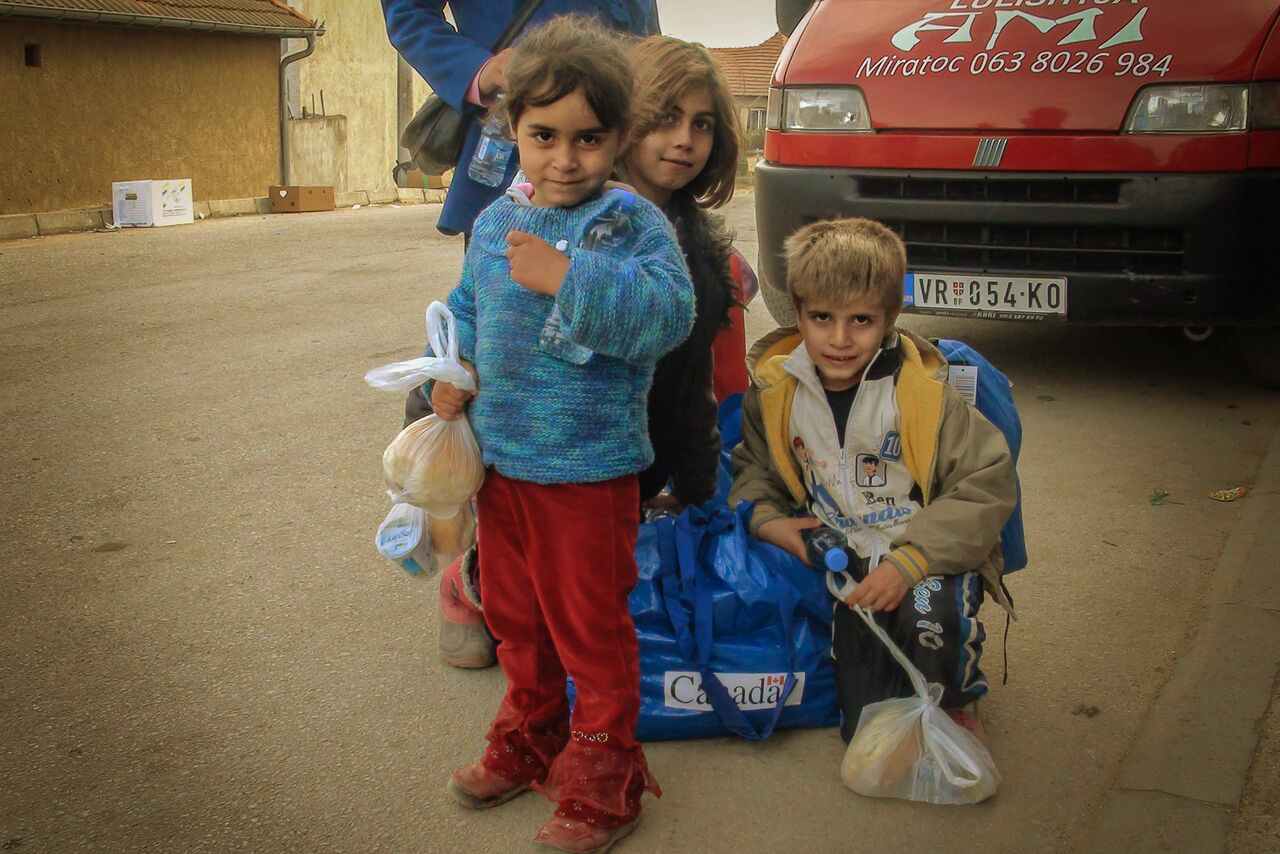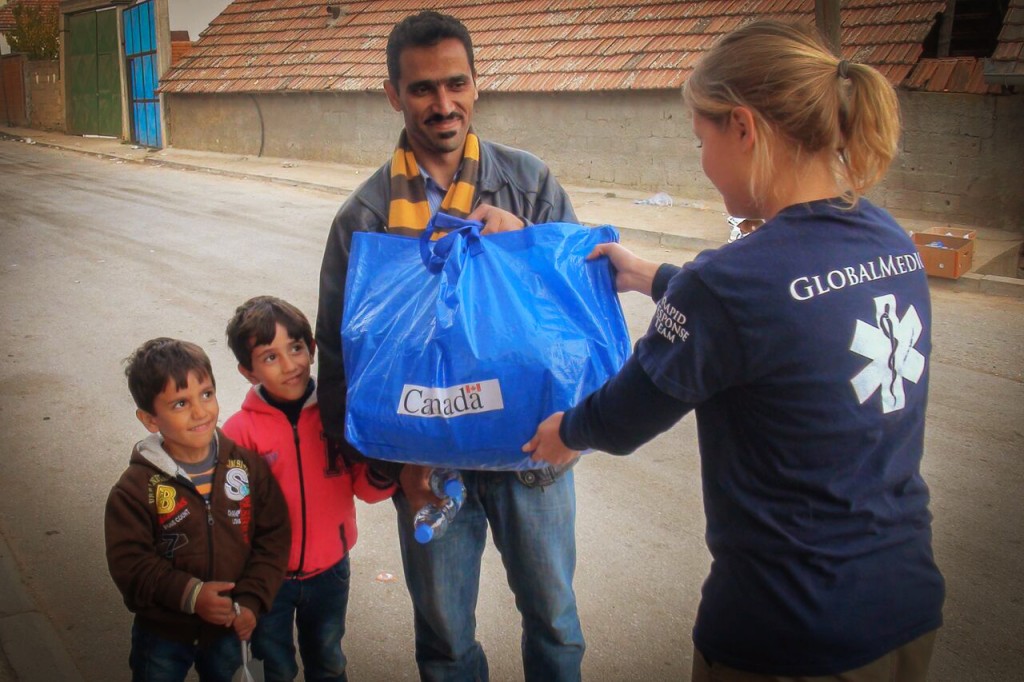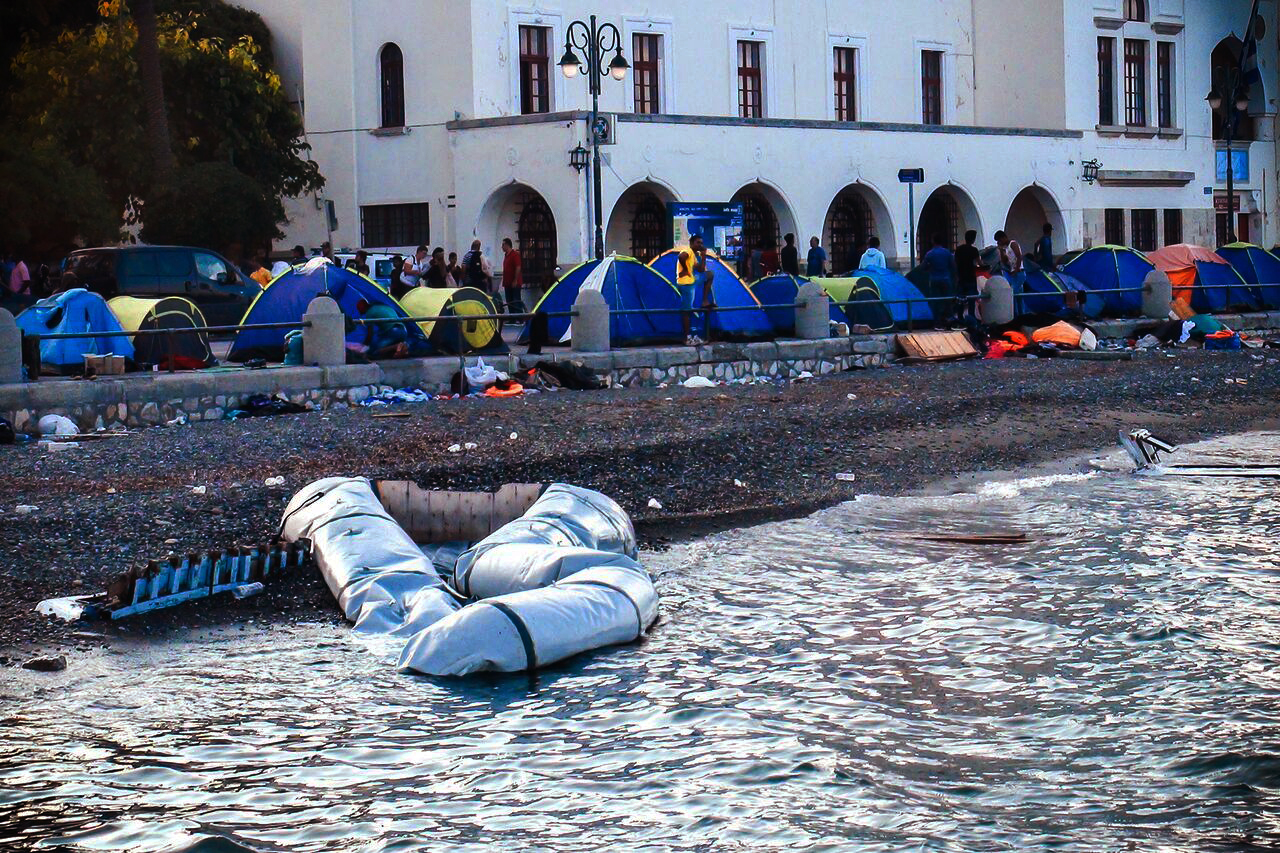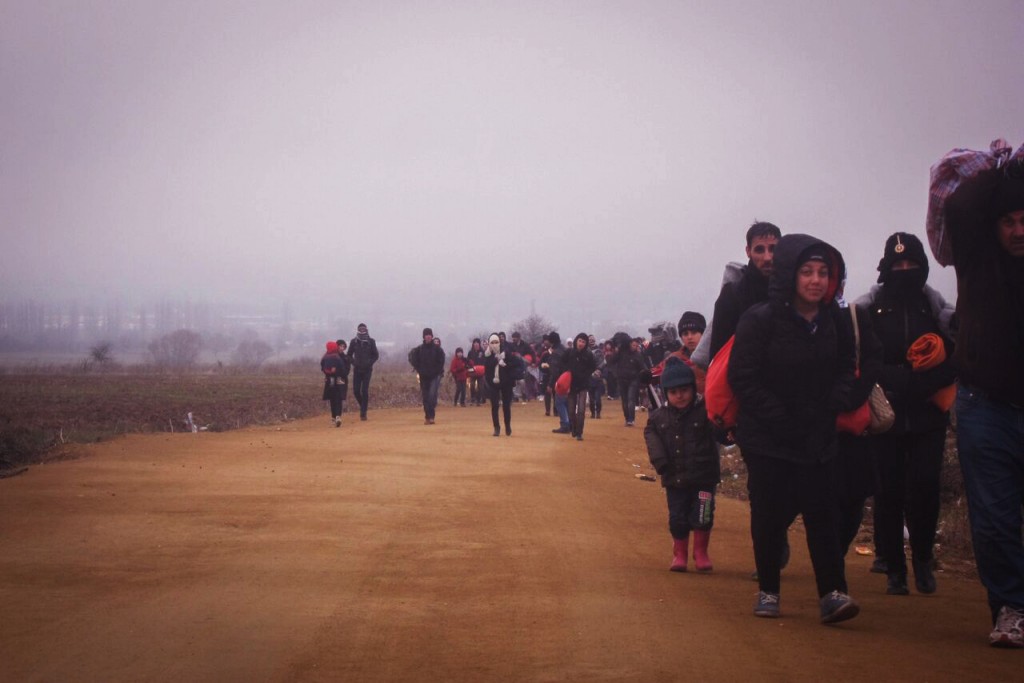This post was provided by Adam Petricic, Emergency Programs Officer at GlobalMedic as part of our refugee series, Leaving Home: A Series Exploring the International Refugee Crisis. The multi-part blog series features stories from those on the ground, as well as the response from charities and Canadians across the country. This blog describes the needs of those displaced within Syria, and others living in refugee camps such as those in Greece, while taking a close look at the hardships faced by refugees during their travels and experience during winter.

The journey is long and difficult. It passes through seven or eight countries by boat, bus, train and foot. Despite the challenges and dangers along the way, it’s preferable to life back home – or what used to be home. It’s all done in hope for a better life. Leaving with only what they can carry, families have left everything behind to escape the violence and danger and find something new, something better, somewhere else.
The civil war in Syria is entering its sixth year. To date, almost five million Syrians have fled their homeland, and GlobalMedic has been working with Syrian refugees for the past four years. Our programming in Syria, Lebanon, Greece, Serbia and Iraq has reached 18,800 people at almost all stages in their journey to safety.
Providing Hospitals and Clean Water in Syria
Before ever leaving their home country, millions of Syrians are internally displaced. Some are able to prepare for the trip ahead, but most are forced to flee without notice as the fighting around them gets closer and closer to home.
In January 2014, GlobalMedic began working in Syria to provide aid to people living in internally displaced person (IDP) camps. The camps were overloaded with families who had been forced from their homes. The signs of war were obvious. Men, women and children arrived tired and scared. Many had injuries they had sustained during the war. The camps were in dire need of medical equipment, and local doctors were overwhelmed by the number of patients pouring in each day.
GlobalMedic erected two Alaska Field Hospitals to increase the capacity of local doctors to provide lifesaving support – providing a safe, sheltered environment to treat patients, many of whom were women and children. This critical infrastructure was vital to assist Syrian organizations that were working tirelessly to keep up with the relentless flow of people escaping the conflict. In addition, GlobalMedic distributed 200 household water purification units and 55,000 water purification sachets to ensure families had a reliable source of clean water while living in temporary accommodations. This program ensured families were healthy, because for many of them, their difficult journey was just beginning.

Delivering Food and Essential Supplies in Greece
The most difficult and deadly part of a refugees’ journey to Europe is the crossing of the Mediterranean. After making their way through Turkey, many refugees look toward Greece, and Turkish smugglers arrange transportation to the Greek Islands in boats that are unsuitable to traverse the treacherous waters. Families are given substandard life vests in the event of the boat capsizing or sinking, which is far from uncommon. In 2016 alone, over 410 people have died attempting this journey, and over 340 children have drowned since last September. Adding to the risk, most refugees are forced to make the voyage at night to avoid detection from coast guards.
In October of last year, GlobalMedic began operating on the Greek island of Kos. Members of our Rapid Response Team worked through the night giving out essentials such as blankets and hygiene supplies, in addition to food kits to refugees immediately as they arrived on shore. GlobalMedic reached more than 8,000 refugees through this response.

Getting Ready for Winter as Families Continue Through Serbia
From Greece, refugee families usually continue making their way through Europe, most along what is called the Balkan Route. This route leads them up through Macedonia, Serbia, Croatia, Slovenia and Austria and onto Germany and the rest of Europe. Traveling by train, bus and on foot from border to border, it is a long, harsh and costly trip. During the winter months, many families are unprepared for the cold weather ahead. Because many travel in large groups, communicable diseases spread quickly, threatening the most vulnerable members including infants and children.
Since November 2015, GlobalMedic has been working in Preševo, Serbia — a sleepy town on the southern border with Macedonia that has seen up to 12,000 refugees pass through each day. In the beginning, they would line the streets waiting to register for a transit visa at the local customs office. The Serbian government scrambled to set up a more formal reception centre to provide temporary shelter, washrooms and showers to the people in transit. Organizations distribute food and supplies, and doctors are available to treat injuries and illness.

GlobalMedic arrived each day with winterization and hygiene supplies, including warm winter jackets, waterproof boots, hats, soap and toothbrushes and distributes them to mothers and children waiting in the long line. These items help keep refugees warm and healthy as they wait – sometimes upwards of 12 hours. In total, over 2,800 families received these supplies.
Despite the treacherous waters, freezing winters, risk of illness and injury, and countless barriers, Syrian refugees are facing along their travels north, they keep moving – and more Syrians keep coming. In their journey to a better life, it is hard to find something that will stop them in their tracks. They have experienced something that few people will ever have to experience – something that would make you pack up everything you own and flee from your homeland. With the support of Canadians, and other donors around the world, GlobalMedic has been able to help lighten this immense burden, and hopefully made their trip to a new life a little bit easier.
To learn more about GlobalMedic, or to make a donation to help refugees, please visit their charity profile page >>
Leave a Reply